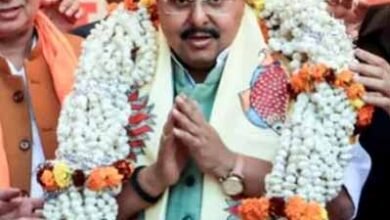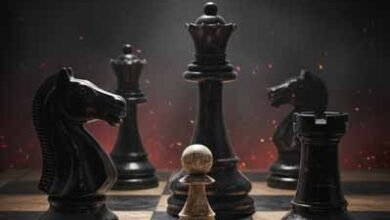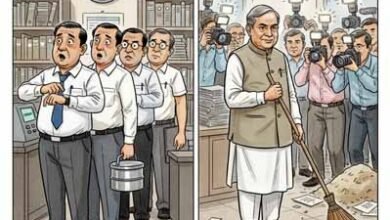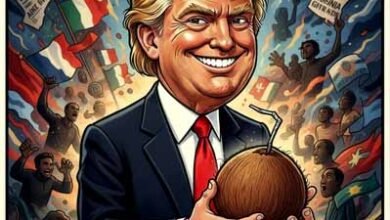
दुविधा…
भारत को उत्सवों का देश कहा जाता है. यहाँ का हर मौसम किसी न किसी त्योहार की दस्तक देता है. अगर उसमें चुनावी माहौल हो तो, जैसे एक राष्ट्रीय पर्व ही बन जाता है. लेकिन जब ‘चुनावी मौसम’, ‘जेबों की खाली’ और ‘त्योहारों का संगम’ एक साथ होता है, तो यह एक विचित्र और विरोधाभासी स्थिति पैदा करता है. यह संगम उल्लास और चिंता, उम्मीद और मजबूरी की एक ऐसी डोर बुनता है, जिसमें आम आदमी पिस जाता है.
भारतीय संस्कृति की आत्मा हैं त्योहार. दीपावली की रोशनी, दुर्गा पूजा का उत्साह, ईद की सेवइयाँ और क्रिसमस की खुशियाँ… ये सब सिर्फ धार्मिक अनुष्ठान नहीं, बल्कि सामाजिक मेल-मिलाप और सबसे बढ़कर, अर्थव्यवस्था के लिए संजीवनी होते हैं. त्योहारों के मौसम में लोग दिल खोलकर खर्च करते हैं. नए कपड़े, उपहार, घर की सजावट, मिठाई, और यात्रा – सब कुछ बाजार में रौनक ला देता है. छोटे से लेकर बड़े व्यापारी तक, हर कोई इस मौसम का इंतजार करता है.
लेकिन इस उल्लास के ठीक विपरीत, जेबें खाली होने का यथार्थ खड़ा है. महंगाई की मार, बेरोजगारी की चुनौती और कोविड-काल के बाद धीमी पड़ी आर्थिक रिकवरी ने मध्यम वर्ग और गरीब तबके की क्रय शक्ति को बुरी तरह प्रभावित किया है. ऐसे में, जब एक तरफ घर की खुशियों के लिए खर्च करने का सामाजिक और भावनात्मक दबाव होता है, तो दूसरी तरफ सीमित आय और बचत का डर. त्योहारों की भव्यता और पारिवारिक अपेक्षाओं को पूरा करने की जद्दोजहद में आम आदमी कर्ज लेने या अपनी छोटी-मोटी जमा-पूंजी को खत्म करने पर मजबूर हो जाता है.
उधर चुनावी मौसम भी अपनी पूरी धमक के साथ दस्तक देता है. चुनाव लोकतंत्र का महापर्व है, लेकिन यह अपने साथ भारी-भरकम खर्च भी लाता है. राजनीतिक दलों के प्रचार, रैलियों, विज्ञापनों और ‘वोटर आउटरीच’ के नाम पर लाखों-करोड़ों रुपये खर्च किए जाते हैं.
एक तरफ, यह चुनावी खर्च बाजार में कुछ हद तक तरलता (लिक्विडिटी) लाता है—टेंट वालों को काम मिलता है, कैटरर्स व्यस्त होते हैं, ट्रांसपोर्ट का कारोबार बढ़ता है और प्रिंटिंग प्रेस रात-दिन चलती हैं. यह छोटे समय के लिए कुछ लोगों को अस्थायी रोजगार भी देता है. लेकिन दूसरी तरफ, यह चुनावी शोर त्योहारों के सच्चे उल्लास को दबा देता है. आचार संहिता लागू होने से कई सरकारी घोषणाएं रुक जाती हैं, जिससे बाजार में अनिश्चितता का माहौल बन जाता है. सबसे महत्वपूर्ण, जनता के मन में यह सवाल उठता है कि जब सरकारें और नेता चुनाव प्रचार पर इतना पैसा खर्च कर सकते हैं, तो वही पैसा गरीबों के लिए सीधे राहत, सस्ती शिक्षा या स्वास्थ्य सुविधाओं पर क्यों नहीं खर्च किया जाता?
इस त्रिकोणीय संगम में, आम नागरिक मनोरथ (इच्छा) और यथार्थ (सच्चाई) के द्वंद्व में फंसा हुआ है. त्योहार मनाना है, बच्चों को खुश करना है, घर को सजाना है, लोकतंत्र के उत्सव में हिस्सा लेना है. वहीं, जेबें खाली हैं, भविष्य की चिंता है, और चुनावी वादों की विश्वसनीयता पर सवाल है. इस विरोधाभासी माहौल में, समाज का एक बड़ा हिस्सा अपने त्योहारों को बड़े पैमाने पर मनाने से कतराने लगता है.उत्साह फीका पड़ जाता है, और खरीदारी में कटौती करनी पड़ती है. चुनावी वादों के बीच, वह व्यक्ति मूलभूत आर्थिक राहत की तलाश करता है, जो उसे बेफिक्र होकर अपने त्योहारों को मनाने की आजादी दे सके.
यह त्रिकोणीय संगम एक कटु सत्य को उजागर करता है—जनता की आस्था, संस्कृति और लोकतंत्र के प्रति उसका समर्पण अटूट है, लेकिन उसकी आर्थिक स्थिति कमजोर है. सरकारों और राजनीतिक दलों को यह समझना होगा कि एक खुशहाल लोकतंत्र तभी मजबूत होगा जब उसके नागरिक आर्थिक रूप से सशक्त हों.
सभी पाठकों को पंचदिवसीय महापर्व की हार्दिक शुभकामनाएं…
========== ========= ===========
The Dilemma…
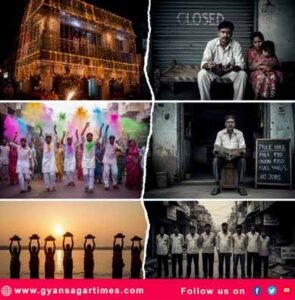
India is known as a land of celebrations. Every season here brings a festive celebration. If there’s an election atmosphere, it becomes a national festival. But when ‘election season,’ ’empty pockets,’ and ‘festivals’ coincide, it creates a strange and contradictory situation. This confluence weaves a web of joy and anxiety, hope and helplessness, in which the common man is crushed.
Festivals are the soul of Indian culture. The lights of Diwali, the excitement of Durga Puja, the vermicelli of Eid, and the joy of Christmas… these are not just religious rituals, but also social gatherings and, above all, a lifeline for the economy. People spend lavishly during the festive season. New clothes, gifts, home decorations, sweets, and travel—everything brings a buzz to the market. Everyone, from small to large businessmen, awaits this season.
But in sharp contrast to this joy stands the reality of empty pockets. The impact of inflation, the challenge of unemployment, and the slow economic recovery after the COVID-19 pandemic have severely impacted the purchasing power of the middle class and the poor. In such a situation, on the one hand, there is social and emotional pressure to spend for family happiness, and on the other, there is limited income and the fear of savings. The struggle to meet the grandeur of festivals and family expectations forces the common man to take out loans or exhaust his meager savings.
Meanwhile, election season arrives with full force. Elections are a grand festival of democracy, but they also bring with them enormous expenses. Political parties spend lakhs and crores of rupees on campaigning, rallies, advertisements, and voter outreach.
On the one hand, this election expenditure brings some liquidity to the market—tent vendors find work, caterers are busy, transportation businesses thrive, and printing presses operate around the clock. This also provides temporary employment to some people for a short period. But on the other hand, this election noise drowns out the true joy of festivals. The imposition of the code of conduct halts many government announcements, creating an atmosphere of uncertainty in the market. Most importantly, the public question arises: if governments and leaders can spend so much money on election campaigns, why isn’t that money spent directly on relief for the poor, affordable education, or healthcare?
In this triangular confluence, the common citizen is caught in a dilemma between desire and reality. They want to celebrate festivals, please their children, decorate their homes, and participate in the celebration of democracy. At the same time, their pockets are empty, they worry about the future, and the credibility of election promises is questioned. In this contradictory environment, a large segment of society begins to refrain from celebrating their festivals in a grand manner. Enthusiasm fades, and shopping is cut back. Amidst the electoral promises, individuals seek basic economic relief that will allow them to celebrate their festivals without worry.
This triangular confluence reveals a harsh truth—the people’s faith, culture, and dedication to democracy are unwavering, but their economic condition is weak. Governments and political parties must understand that a prosperous democracy will only be strengthened when its citizens are economically empowered.
Heartiest greetings to all readers on the five-day grand festival…


